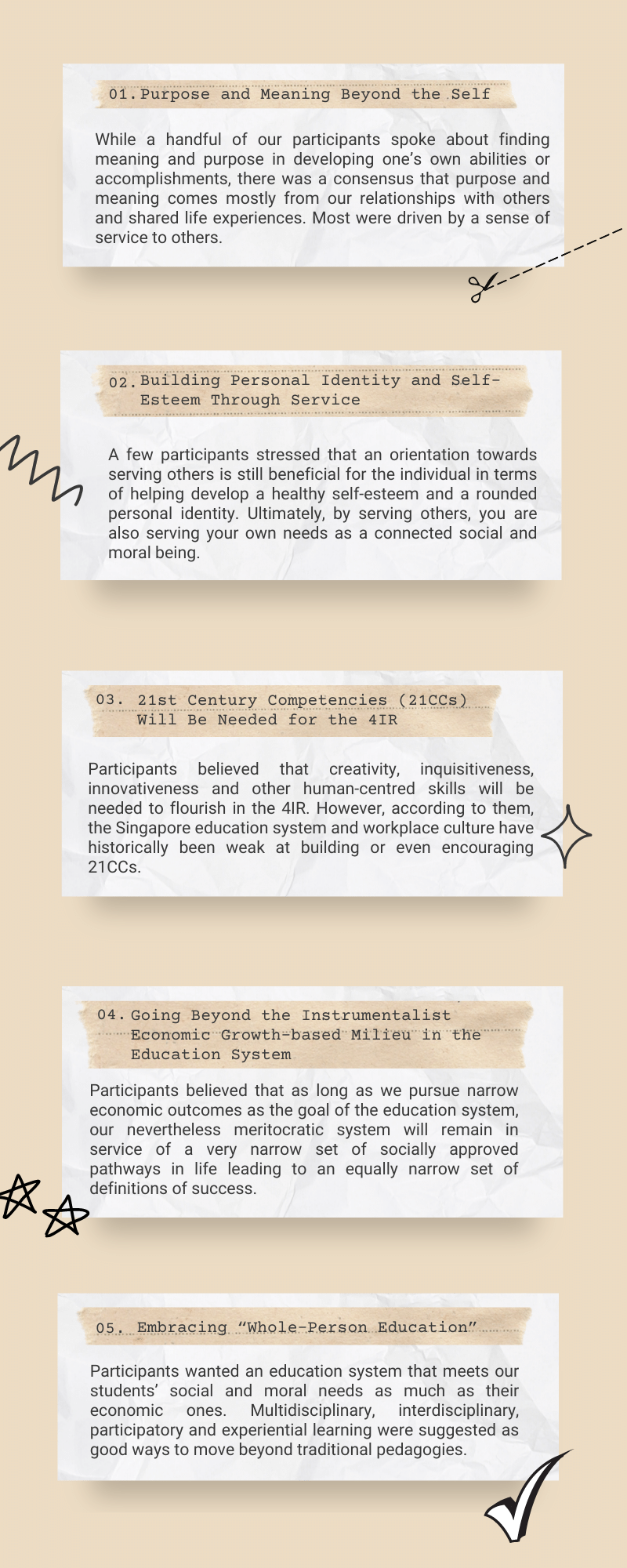Young Children’s Voices in Mathematical Problem Solving
Contributed by Dr Ho Siew Yin and Sng Wei Qin Abbie, from NTUC First Campus, for SingTeach Virtual […]
Read More
This article is based on the OER-AST Research Webinar jointly organized by the Academy of Singapore Teachers and the Office of Education Research. Themed “Nurturing and Inspiring a Sense of Purpose and Meaning in our Youth”, the webinar sought to provide research-based insights on the topic of Character and Citizenship Education.
Contributed by Dr Johannis Auri Bin Abdul Aziz, Associate Professors Mark Baildon and Mary Anne Heng for SingTeach Virtual Staff Lounge
The forthcoming Fourth Industrial Revolution (4IR), coined by Klaus Schwab (2016) of the World Economic Forum, threatens to disrupt the way we work, study and organize our societies through the anticipated implications of the rise of burgeoning technologies such as nanotech, big data, AI and robotics.
My co-principal investigators, Associate Professors Mary Anne Heng and Mark Baildon, and I, wanted to find out what the implications of the 4IR might be on the prospects of Singaporeans finding meaning and purpose in life, and what we will need from our education system to flourish during it.
George and Park (2016) tell us that among other things, meaning is about being able to think of our lives as “making sense” and “mattering in the world.” William Damon and others (2008), meanwhile, define purpose as, “at once meaningful to the self and of consequence to the world beyond the self.” So, even though we begin by looking at individual lives, ultimately, meaning and purpose point toward larger contexts.
Instead of doing a general survey, we decided to focus on 15 prominent Singaporeans from 6 societal sectors: Business, Education, Public Policy, the Arts, Religious Organisations and Voluntary Service Organisations. Our participants are some of the leading figures in these sectors and many are well known for their participation in public discourse on various topics.
We asked them 3 main questions. What do purpose and meaning mean for them, coming from their various sectors? What are the prospects of continuing to find purpose and meaning in the future of work as they understand it? And how do the answers from the above affect what we will need from our education system going forward?

Most of the findings above are congruent with the “Thinking Schools, Learning Nation” (TSLN) vision launched in 1997. However, our participants want to see to quicker, more comprehensive and committed changes. That, however, may not be possible without higher levels of buy-in from skeptical parents.
References
Damon, W. (2008). The Path to Purpose: How Young People Find Their Calling in Life. The Free Press.
George, L. S., & Park, C. L. (2016). Meaning in Life as Comprehension, Purpose, and Mattering: Toward Integration and New Research Questions. Review of General Psychology, 20(3), 205–220. https://doi.org/10.1037/gpr0000077
Schwab, K. (2016). The Fourth Industrial Revolution. World Economic Forum.